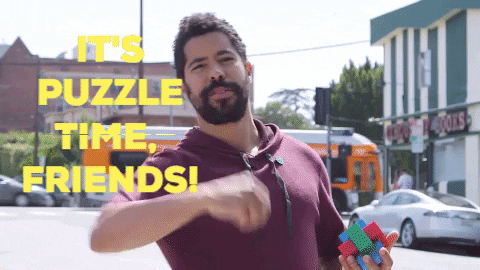How Puzzles Help Kids Develop
Forget about video games, cars and dolls; puzzles are the real universal toy in the world. Children and adults alike love puzzles because they stimulate the brain and provide endless entertainment.

But did you know puzzles also play a critical role in your child's development? According to psychologists, a child’s brain develops as they manipulate and experience hands-on the world around them. Puzzles provide the perfect opportunity to do this as long as you use age-appropriate pieces.
The three basic skills puzzles build in your child include;
1. Physical skills
As your baby learns to hold, turn and place the puzzle pieces where they belong, several physical skills develop. One, they practice and develop fine motor skills, which are the small precise movements you make with your fingers and hands. These skills will help the child hold a pen and write, hold a spoon, and put food in their mouth without making a mess and all those small activities.
Second, puzzles help develop hand-eye coordination. As the child is picking up a puzzle piece, their eyes and brain figure out where it goes in the puzzle. Again, this will help do everyday activities like eating, writing, typing, and even driving.
2. Cognitive skills
Cognitive skills refer to the core skills a child needs to think, read, reason, remember and pay attention. The way to develop these skills is by working the brain so that neurons can connect and become functional parts. The simple act of solving a puzzle helps with memory, shape recognition, problem-solving.
A child also gets to practice critical thinking, planning, and goal setting, skills that will help solve life problems.
Solving puzzles also help a child understand the world around them and develop spatial awareness. Since it takes time to complete a puzzle, your brain also learns to focus and concentrate on one thing for a while. It is really one of the most effective ways of exercising the brain and boosting its abilities.
3. Emotional skills
Last but not least, puzzles help develop emotional skills from a very young age. For example, the child will learn social skills and all it entails when they complete a puzzle with someone else. They learn critical skills such as effective communication, patience, teamwork, and listening.
Age Appropriate Puzzles for Kids
The only way puzzles can help with child development is if they are age-appropriate. For example;
1. 2 to 3 years
Kids ages 2-3 require big knob pieces with 3-10 pieces only. They can start with building blocks and grow from there.
2. 4 to 5 years
Construction sets are appropriate for kids ages 4-5 as long as the pieces are not too small. This age group can also handle jigsaw puzzles with less than 50 pieces. Our Just Smarty Jigsaw puzzles come in exciting shapes such as trains, dinosaurs, and animals to help your child recognize shapes, patterns, and everyday items. They will help your child develop concentration, creativity and wean them away from the screen for a good while.
3. 6 to 8 years
For kids ages 6-8, you want to move from maxi blocks and give them real jigsaw puzzles with 100 pieces or more. This will develop their fine motor skills and other cognitive abilities as the child starts school.
4. 9 years and above
Finally, kids ages nine and above can solve any puzzle, provided they have guidance.
